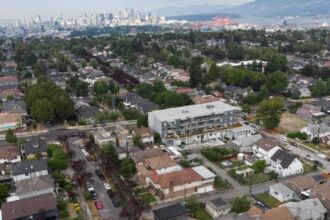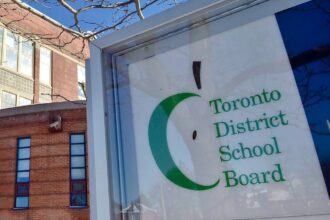In a move that has ignited fierce debate across educational circles, the Ford government’s recent legislation granting itself unprecedented powers to take over school boards has drawn sharp criticism from opposition parties and education advocates alike. The controversial Education Act amendments, passed Thursday night, represent what many critics describe as the most significant centralization of educational authority in Ontario’s recent history.
The legislation, buried within the government’s fall economic statement, empowers Education Minister Stephen Lecce to issue directives to school boards on virtually any aspect of their operations—from financial management to educational programming. More troublingly, it allows the province to appoint supervisors who can assume complete control of democratically elected school boards with minimal oversight or public consultation.
“This represents nothing short of a power grab that undermines local democracy,” said NDP education critic Chandra Pasma during heated legislative debates. “School boards exist precisely because communities should have a voice in how their children are educated.”
The timing of these amendments has raised eyebrows among political analysts, coming just weeks after Premier Doug Ford publicly clashed with the Toronto District School Board over its handling of controversial incidents in schools. Critics suggest the legislation creates a mechanism for the government to silence dissenting voices within the education system.
Minister Lecce has defended the changes as necessary tools to ensure “accountability and excellence” in Ontario’s education system. Speaking to reporters Friday morning, Lecce insisted the powers would be used sparingly and only in cases where boards demonstrate “persistent failure to meet provincial standards.”
“This is about ensuring every child receives the quality education they deserve, regardless of which board they happen to live in,” Lecce stated. “The status quo isn’t working for all students.”
However, education policy experts remain unconvinced. Dr. Michelle Cohen, an education governance researcher at Queen’s University, told CO24 News that the amendments represent “an extraordinary concentration of power with insufficient checks and balances.”
“What’s particularly concerning is how these powers could be used to override locally-determined priorities that reflect community values,” Cohen explained. “The legislation’s vague language about what constitutes grounds for intervention leaves too much room for politically-motivated takeovers.”
Ontario’s four major teachers’ unions have issued a rare joint statement condemning the legislation, warning it could lead to partisan interference in curriculum decisions and potentially undermine collective bargaining rights. The Ontario Public School Boards Association has similarly voiced concerns about the “erosion of democratic principles” in education governance.
The controversy follows a pattern of increasing tensions between the province and school boards on issues ranging from COVID-19 protocols to sex education curriculum. Green Party leader Mike Schreiner characterized the move as “part of a disturbing trend of centralizing power while claiming to be for the people.”
For Ontario parents, the implications remain unclear. While some parent groups have expressed support for stronger provincial oversight, particularly in boards that have struggled with financial management or academic outcomes, others fear the loss of community input into educational decisions that directly affect their children.
As the dust settles on this significant shift in Ontario’s educational landscape, a crucial question emerges: In our quest to standardize educational outcomes, are we sacrificing the democratic principle that communities should have meaningful input into how their schools are run?










